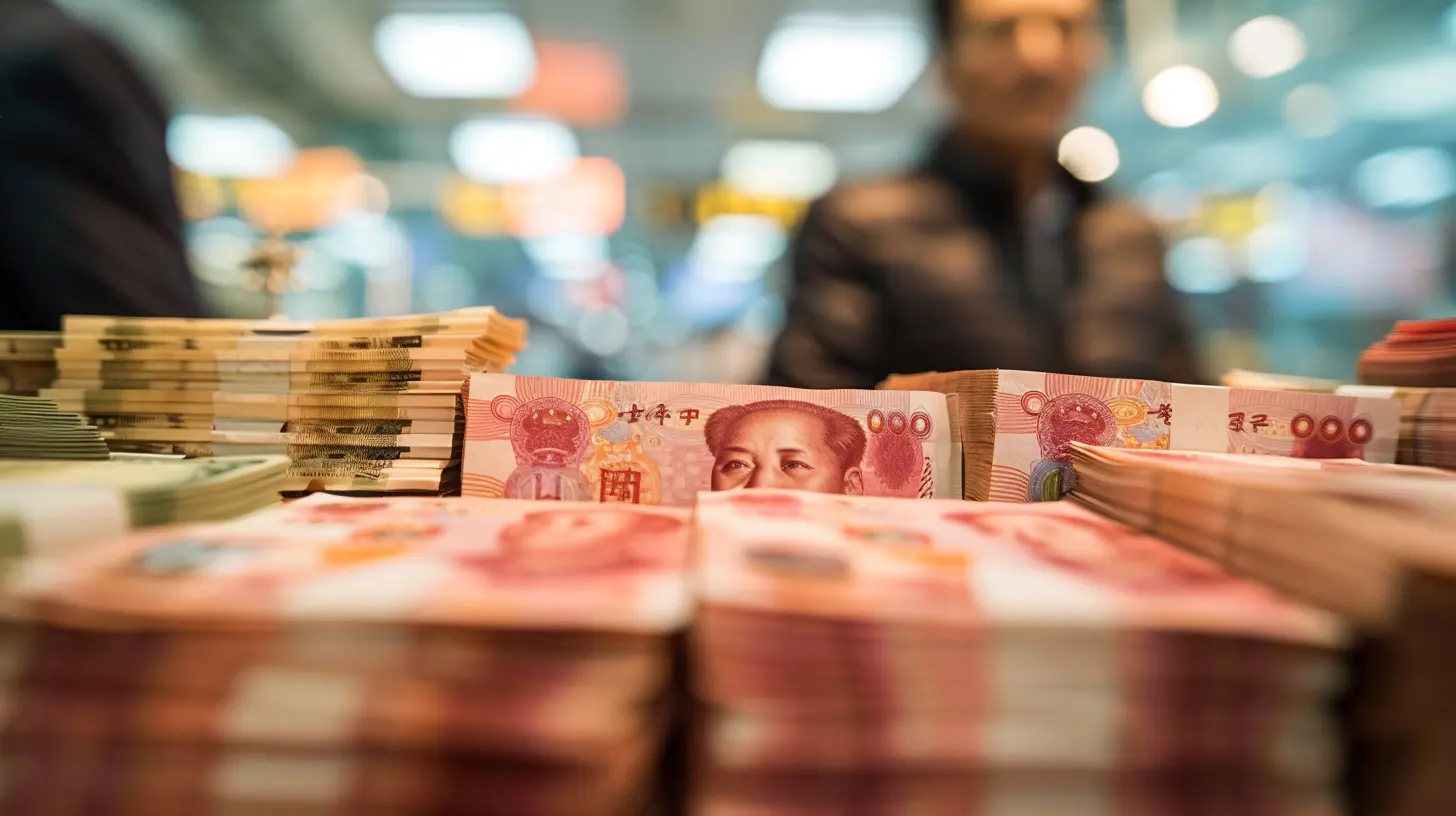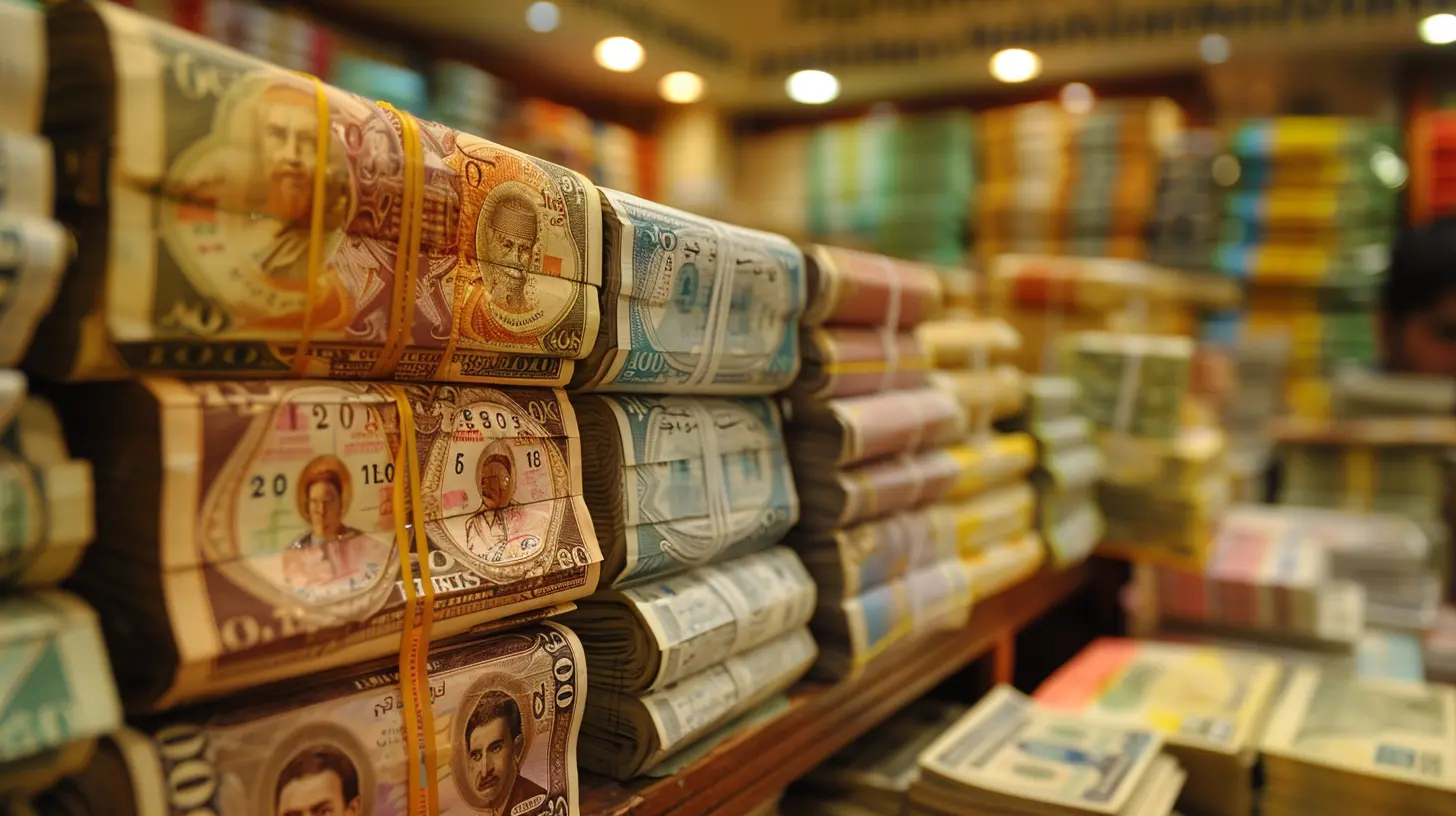The Effect of Political Instability on Emerging Market Currencies
14 September 2025
Let’s face it—currency markets can be moody. They’re like that friend who’s cool one minute and panicking the next. And when politics get heated, especially in emerging markets, you better believe the currency’s going to feel it. Political instability and emerging market currencies? Yeah, they’ve got a love-hate relationship that’s… complicated.
If you've been watching the headlines, you may have noticed how quickly a piece of political news can send a currency into a tailspin. One day, a developing country is attracting foreign investment like hotcakes, and the next—boom—political unrest, protests, maybe even a coup, and the currency’s value nosedives. So what's really going on here? Why does political instability cause that kind of whiplash?
Well, grab your coffee and let’s unpack this together.
What Exactly Do We Mean By “Political Instability”?
Before we dive deep, let’s clear up what we mean when we say “political instability.”It’s not just about elections or changes in leadership—those can be perfectly normal in a healthy democracy. When we talk political instability, we’re usually talking about unpredictable events like:
- Government corruption scandals
- Military coups
- Civil unrest or violent protests
- Arbitrary policy decisions
- Lack of rule of law
- Policy flip-flops
- Disputed elections
Stuff that makes investors nervous and people within that country unsure about their future.
Think of political stability like the foundation of a house. If the foundation starts cracking, even the strongest walls (or economies) start to wobble. Emerging markets, in particular, tend to have “softer” foundations—meaning even small tremors create big ripples.
Why Are Emerging Market Currencies So Sensitive?
Here’s the thing: currencies in emerging markets are like the canaries in the coal mine. They’re super sensitive to changes because:1. Lower Reserve Levels: Central banks in emerging markets don’t usually have massive reserves to defend their currency.
2. Heavier Reliance on Foreign Investment: These markets need outside money to grow—and investors don’t like uncertainty.
3. Higher Inflation Risks: Political instability can lead to bad policy decisions that inflate the local currency.
4. Debt in Foreign Currency: Many emerging countries borrow in USD or Euros. If the local currency weakens, their debt just got a whole lot harder to pay off.
So when politics start shaking up the country, investors pull out their money quicker than a cat seeing water. With less demand for the currency, its value drops—hard.
Real-World Examples That Hit Hard
Let’s take a peek at some real situations where politics shook things up.1. Turkey (2018–present)
Turkey's lira has been on a rollercoaster. A huge reason? The government has interfered with central banking independence. President Erdoğan frequently pressured the central bank to cut interest rates, even when inflation was soaring. Investors saw this as risky and started pulling out. The result? The lira's value plummeted, and inflation spiked.2. Argentina (Always a Case Study)
Argentina has a long history of political and economic instability. Every time a new government comes in, it often changes economic policies dramatically. Foreign investors don’t like surprises, especially when it comes to things like capital controls and debt repayments. As a result, the Argentine peso constantly struggles to maintain value, and the country finds itself in default more often than most.3. South Africa (Gupta Scandal & Zuma Years)
South Africa saw its currency—the rand—get battered during years of corruption scandals involving former President Jacob Zuma and the powerful Gupta family. Investor confidence eroded, international credit ratings dropped, and the rand weakened significantly.
The Chain Reaction of Political Chaos
So how does it all go down, exactly? Let’s break it down step-by-step:1. Political Event Occurs
Mistrust spreads like wildfire. This could be elections with disputed results, violent protests, or even talk of nationalizing industries.
2. Investor Confidence Dips
Foreign investors hate uncertainty. The moment danger or unpredictability enters the scene, they pull out their money to avoid losses.
3. Capital Flight Begins
When money leaves the country, demand for that country’s currency drops. Less demand = weaker currency.
4. Debt Gets Heavier
Most emerging markets have debt in foreign currency (especially USD). A weaker local currency makes paying off that debt way more expensive.
5. Inflation Takes Over
As the currency weakens, import prices rise. That means basic goods like food and fuel become more expensive, hurting everyday people.
6. Social Unrest Grows
High inflation? Rising prices? It’s a recipe for protests and strikes—which only deepen the political instability.
See where this is going? It becomes a vicious cycle.
The Role of Central Banks: The Unsung Heroes (or Villains)?
When chaos starts, everyone turns their eyes to the central bank. Their response can calm the storm… or stir the pot.A confident, independent central bank can:
- Raise interest rates to protect the currency
- Use foreign reserves to stabilize the exchange rate
- Reassure the markets through clear communication
But if the central bank is under political influence (as we saw in Turkey), then its responses might be weak or misguided.
That’s why investor trust in central bank independence is absolutely critical. If a country’s central bank is perceived to be a puppet of the government, investors will likely flee.
Media and Market Psychology: Fuel to the Fire
Sometimes, it's not even about what's happening—it's about what people think is happening. The media plays a huge role here. A tweet, a rumor, or even one bad headline can trigger a selloff.In emerging markets, this reaction is magnified because they don’t have the same institutional buffers as developed markets. If enough investors get spooked, it can create a self-fulfilling prophecy. The fear of a crisis becomes the crisis.
How Can Countries Mitigate Currency Risks?
It’s not all doom and gloom. Some emerging markets have gotten pretty good at navigating these storms. Here are a few ways they do it:1. Build Up Foreign Currency Reserves
This gives central banks more ammunition to defend their currency during turbulent times.
2. Encourage Long-Term Investment over Hot Money
Short-term investors are more flight-prone. Long-term investors are more likely to stick through the rough patches.
3. Strengthen Legal and Institutional Frameworks
A strong court system and transparent policies help reassure investors, even when politics get messy.
4. Diversify the Economy
Countries that rely on one export (like oil) are more vulnerable. A diversified economy offers more stability.
5. Transparent Communication
The way governments and central banks talk to the public and investors can dramatically impact confidence. Misinformation sinks ships.
Can You Invest in Emerging Markets Amid Political Uncertainty?
Absolutely—but with your eyes wide open.Political risk is just one piece of the puzzle. Experienced investors often price in this risk and still find value in emerging markets. Higher risk, yes—but also potentially higher returns.
If you're thinking of investing:
- Diversify your exposure (don’t bet everything on one country)
- Use ETFs or funds that spread risk across multiple regions
- Watch political developments closely
- Hedge your currency exposure if you can
And remember, timing is everything. Sometimes, the best opportunities come after the storm, not during it.
Final Thoughts: It’s All Connected
Look, emerging market currencies are fascinating, but they’re also fragile. Political instability doesn’t just ruffle a few feathers—it can shake up the whole financial system in those countries. The people feel it, businesses feel it, and global investors definitely feel it.And while it’s easy to point fingers or panic, the key is understanding the mechanisms behind the movement. That awareness is power—whether you’re an investor, a policymaker, or just someone curious about how global events impact your wallet.
So next time you watch political unrest unfold in a far-off country, remember: somewhere behind the scenes, a currency is either falling or fighting to stay afloat.
all images in this post were generated using AI tools
Category:
Market TrendsAuthor:

Uther Graham
Discussion
rate this article
1 comments
Pierce Rogers
“Political instability and currencies are like a bad relationship—lots of drama, unpredictable mood swings, and just when you think it’s stable, it crashes!”
September 22, 2025 at 11:20 AM

Uther Graham
Great analogy! Political instability does create significant volatility in emerging market currencies, often leading to abrupt shifts and uncertainty.


